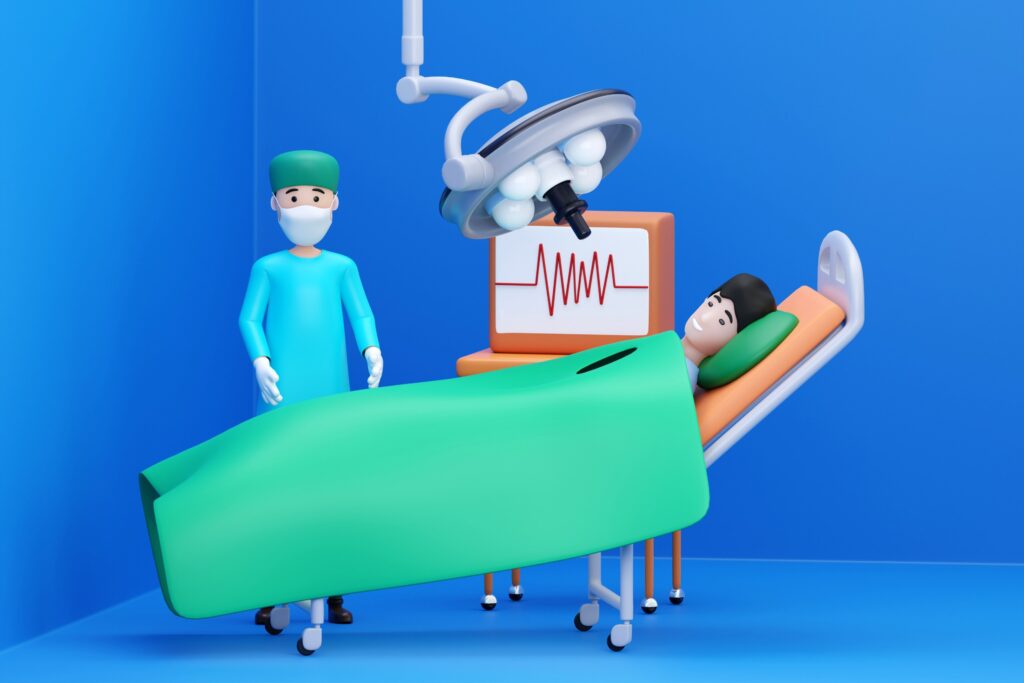- Patients should undergo a preoperative evaluation by a physician in the outpatient clinic to determine if they are suitable for minimally invasive hernia repair surgery.
- Innovative dual local anesthesia methods are used, with effective anesthesia lasting approximately 4-6 hours. The surgery process is painless and can last for several hours after the surgery, allowing patients to return home without being hospitalized. After the anesthesia wears off, patients may feel some pain and discomfort in the surgical wound, but taking anti-inflammatory and pain relieving medications on schedule can reduce postoperative pain and alleviate discomfort. Patients may experience some discomfort involving the surgical wound during the first night’s sleep, but this usually improves after the second day, and the pain gradually subsides.
- Smoking or secondhand smoke can affect wound healing and tissue recovery, and should be avoided as much as possible.
- Minor wound bleeding, bruising on the underside of the glans or subcutaneous tissue, and foreskin edema may occur occasionally after surgery but will gradually improve on their own.
- Within 7 days after surgery, the wound should be kept dry and not wetted. Patients should return to the outpatient clinic for medication changes and wound examination on the second or third day after surgery, and for wound healing and recovery examination on the sixth or seventh day after surgery. The wound is sutured with absorbable thread and the stitches will gradually fall off after one week. Unless there are special circumstances, patients typically do not need to change medication, remove stitches, or cover with sterile gauze after surgery and can take a shower. Patients can begin soaking in warm water after 10 days of surgery.
- Prevent constipation by drinking more water and eating more fiber-rich foods such as vegetables and fruits.
- Patients can gradually engage in light work or other daily activities two days after surgery, but must avoid exerting force on the abdomen, such as coughing, crying, squatting, straining during bowel movements, or lifting heavy objects for two months after surgery. Moreover, they should avoid vigorous exercise during this period.
- It takes about 3-6 months for the surgical wound and tissue to recover to normal. Patients should wait at least one month after surgery to attempt to resume normal sexual activity. For patients with chronic illnesses, such as diabetes, a longer recovery period may be required, and reevaluation is necessary.
- Surgery will not affect other physiological functions or body health, including penis length, testicular function, ejaculation function, semen volume, or sperm quality. The patient’s pre-surgery condition remains the same after surgery and is not altered.

